Some things transcend cultural boundaries and difference. One is art, another is the love of a granny for her grandson.
When writer Lindsay Bruce stopped by Aberdeen Music Hall’s latest exhibition – The Diaspora Everyday – she got more than she bargained for.
Instead of a private tour of eight striking portraits and an interview with Silver City artist Joshua Ekekwe, she was given a front-row seat to the RGU graduate introducing his 79-year-old Nigerian grandmother to his art, for the very first time.
Everyday moments celebrated
Former architecture student Joshua Ekekwe is infectious.
His beaming smile combined with an extraordinary talent for recreating still-life imagery saw him become Rise Up! Festival’s first exhibition artist.
Funded by Aberdeen City Council’s creative pilot scheme Joshua, who works as a graphic designer, successfully pitched to create a series of artworks depicting the everyday lives of people of various diasporas but living in Aberdeen.
Tea ceremonies, hair being braided and shopping for food are some of the activities recreated in his portraits, all pointing to the day-to-day, even mundane, activities that help communities unite and feel at home, away from home.
Printed postcards of the paintings are also available so visitors of the exhibit can write their own letters home.
But for Joshua, no such postcard is needed.
Winning the approval of his family
Supported by his parents, his twin sister Hannah and younger sister Juanita, he had the opportunity to let his granny – Justina Ekekwe, his father’s mother, see his work in person.
“I think I’ve shown her one of my drawings, a while ago,” Joshua says. “But she’s never seen my work properly, and not like this, in an exhibition.”
Initially, the showcase of his work was only to comprise four pieces of art, but on seeing the space he thought “I’d better do some more.”
With no shortage of ideas, it was really a matter of finding time.
Happy times captured
Each of his digital paintings, created using an iPad and Apple pencil, took him 28-35 hours.
Some, like Ijó, depict friends dancing in traditional African attire but involved the self-taught artist working from multiple photos to accurately depict the motion of friends dancing together.
In the description of this composition he wrote: “Ijó, Egwu or Rawa, whatever you call it; dance plays an important roll in the lives of Nigerians and fellow Africans across the diaspora.”
It’s his mum’s favourite.
Different, but the same
“I love how he just captures them in motion,” Toyin Ekekwe says, as she begins dancing herself.
We laugh about how rhythmless I feel when my African friends dance to celebrate the birth of their babies, but how we Scots can’t resist a ceilidh wherever we are in the world too.
It’s why there’s a lovely synchronicity in Joshua featuring Polish and Caribbean stories in his collection too.
We’re all the same, but different, it seems.
Reclaiming his African identity
I was personally captivated by Ntutu isi Mara Mma, which translates as “beautiful hair”.
The image of his friend having his hair styled would have been spectacular enough. It could be a photo.
But the story behind it moved me.
“My friend went to Albyn School and the whole time he was there he had no say in how to style his hair. All of our natural styles or preferences were deemed unacceptable or not part of the uniform,” Joshua explained.
“So he began a journey to sort of reclaim or rediscover who he is and what his hair should be like.
“It’s the epitome of being part of the diaspora, connecting with other people, doing this together.”
Proud of her grandson
But it was Needs More Za’atar” that seemed to wow Joshua’s grandmother.
With his hand on his chin watching for her approval, any worry was shortlived. She beamed from ear to ear, and chattered to her grandson about the meaning behind it.
“It’s lovely to know that she’s happy in seeing what I’ve done. Often our culture centres around science, or law, usually highly academic pursuits. To know she approves is special.”
And she definitely does. With the help of Magnus, Joshua’s dad, she tells me she is “very proud indeed.”
Powerful and connective art
She should be. Her grandson’s work at the Music Hall is powerful in the stories it communicates, masterful in his skill but also beautiful in how it created moments of spontaneous laughter, and movement.
As I leave I’m reminded of how much joy I derived from hearing Scottish accents, or eating haggis on Burns nights, while living in England for two decades.
And how empowering it is to now feel at home.
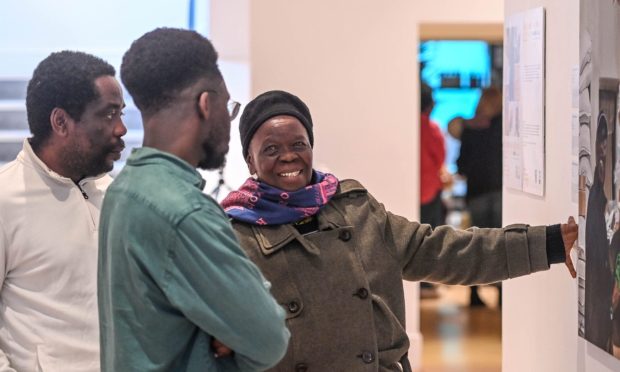
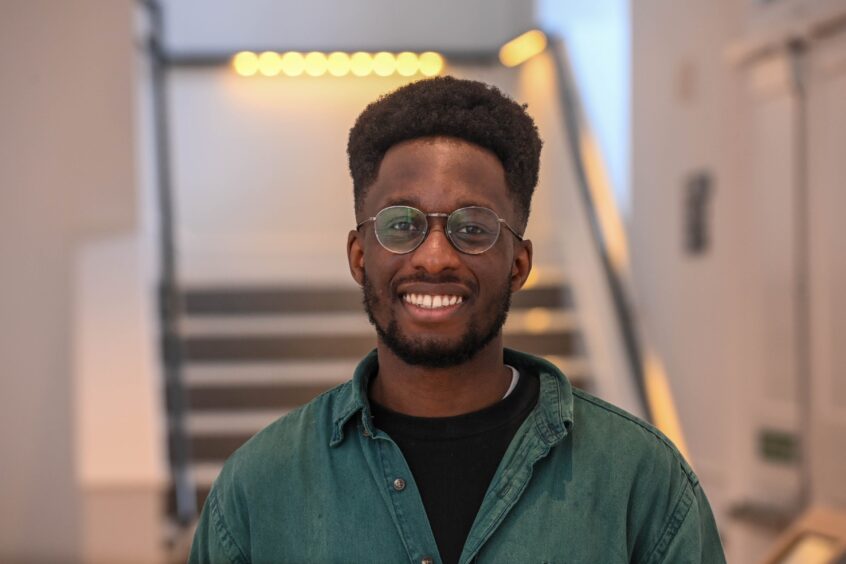
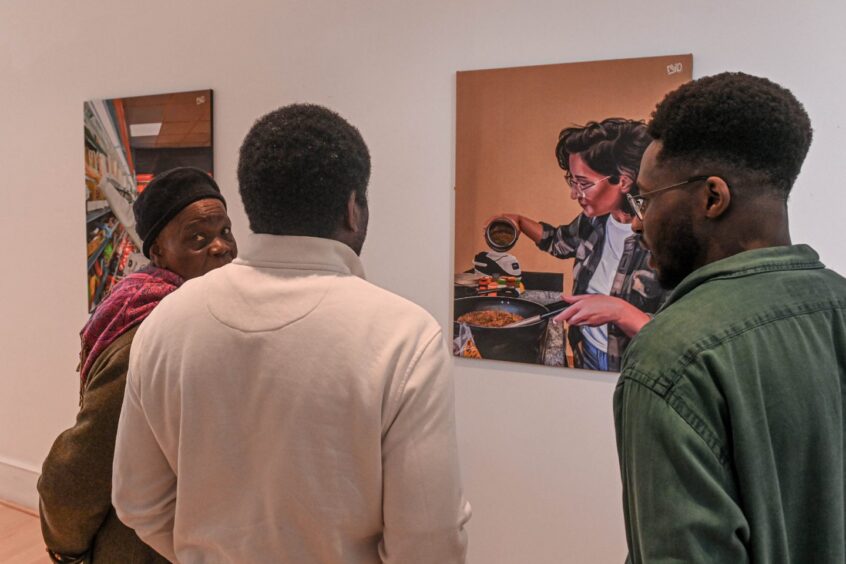
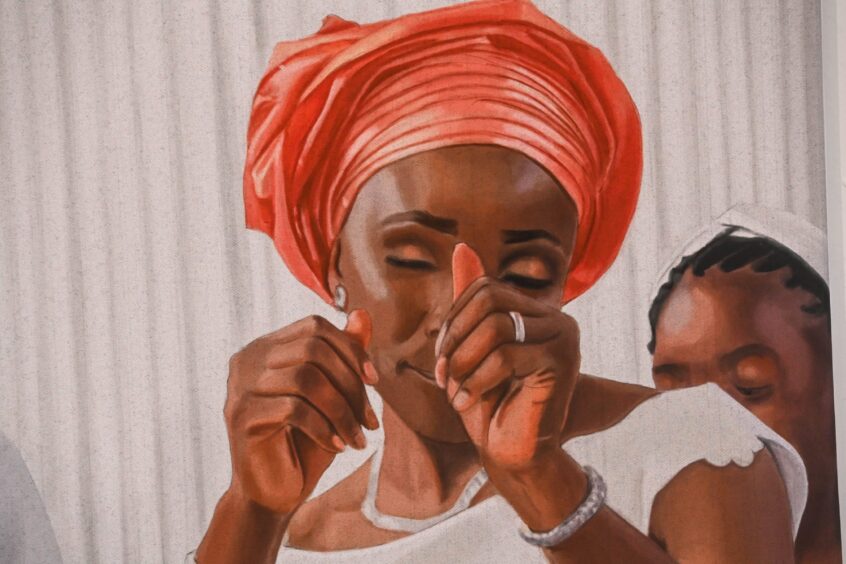
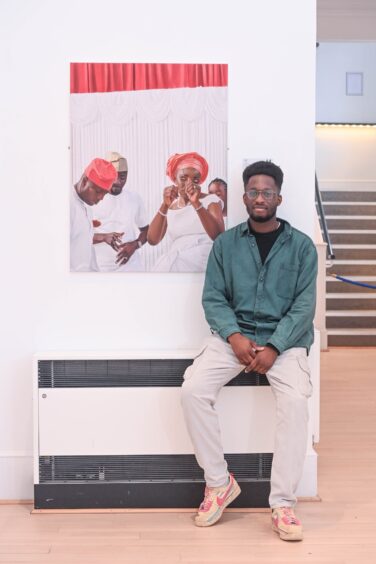
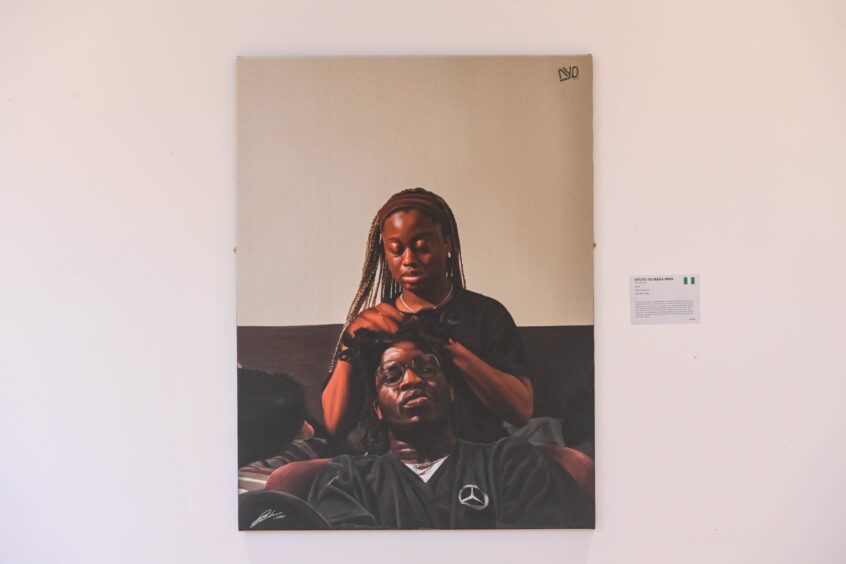
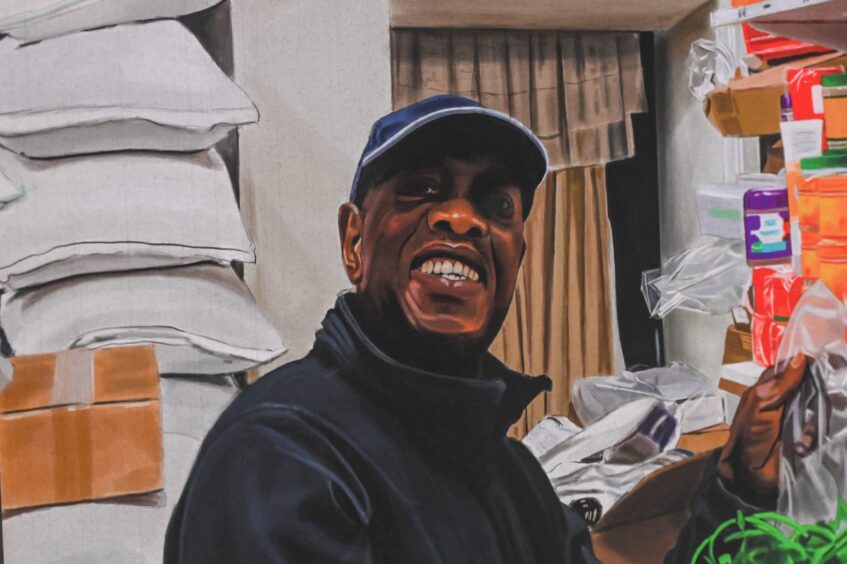
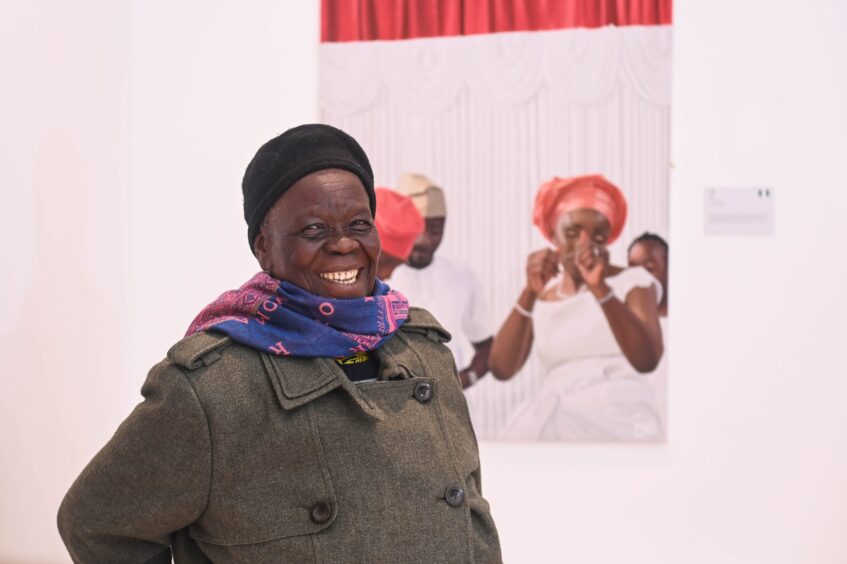
Conversation